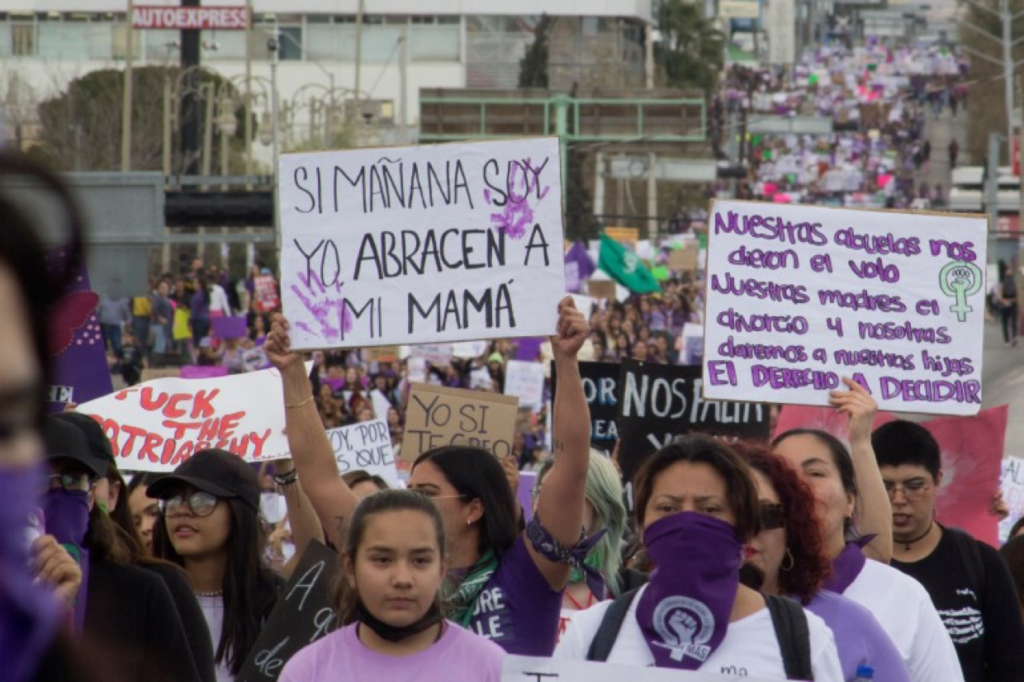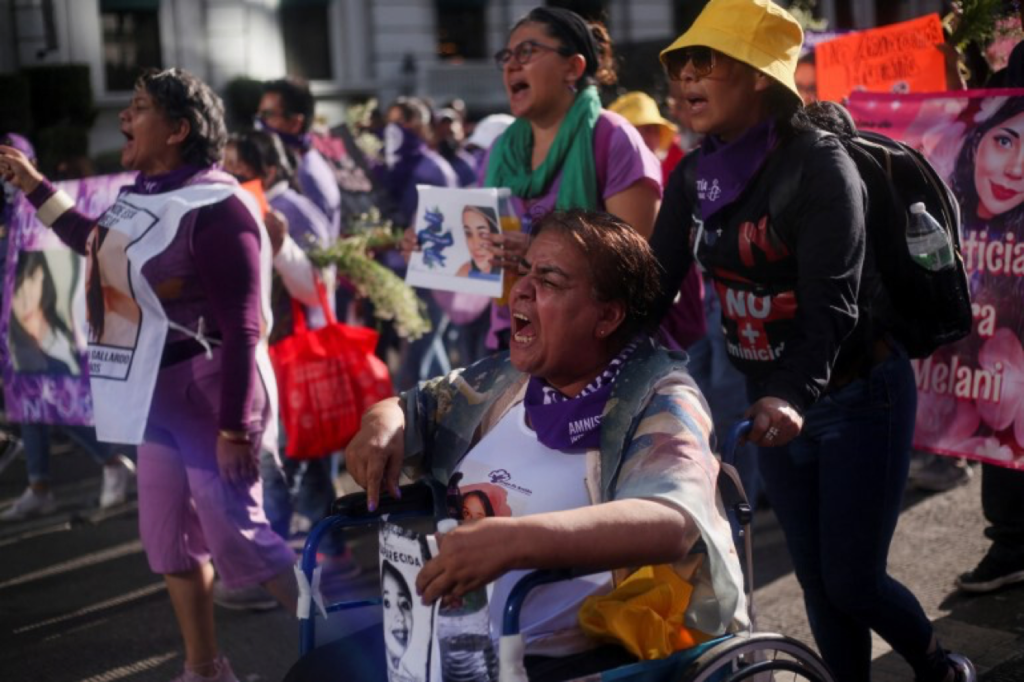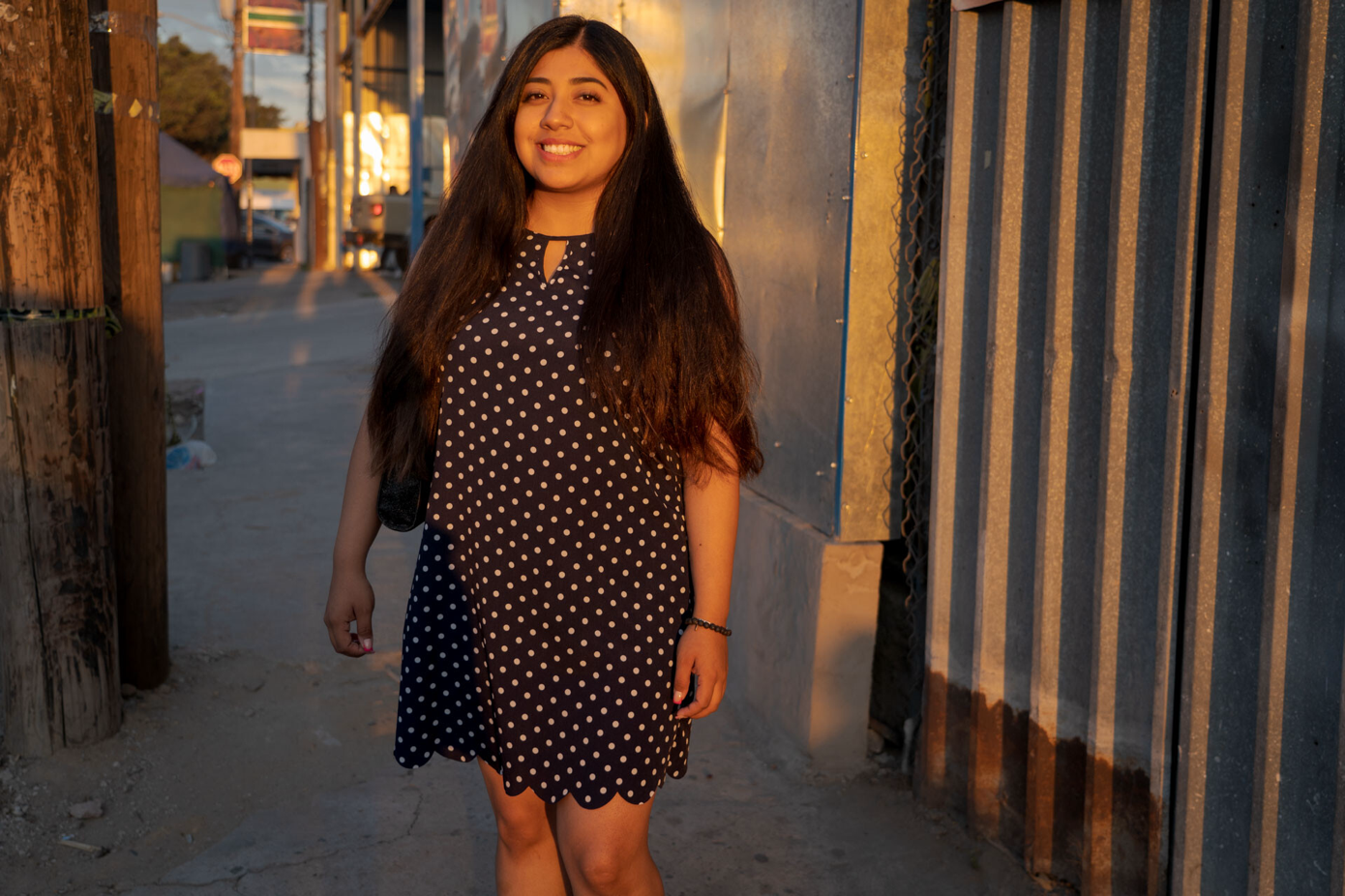Alina Narciso says she found herself facing decades in prison after she killed her abusive boyfriend in self-defence.
Tijuana, Mexico – On the evening of December 12, 2019, as Alina Narciso was falling asleep in her home in Tijuana, Mexico, she remembers hearing her boyfriend Luis Rodrigo Juarez snorting cocaine.
Hours later, she was awoken by a gun to her head. It was Juarez, asking her if she “was going to leave him again”.
“One hand was enough for him to beat me in strength, and drunk and drugged, I thought: I don’t have a chance against him,” Narciso, now 28, told Al Jazeera.
What happened next would raise questions about self-defence law in Mexico — and reshape how the criminal justice system in the state of Baja California assesses gender-based violence.
Both Narciso and Juarez were police officers: They met through work when Narciso was only 22.
But from the very beginning, Narciso said Juarez was extremely controlling: “He wanted us to be together all the time.” He also could be violent: According to Narciso, he had sexually abused her and threatened her life on multiple occasions.
Narciso had tried to leave several times, but Juarez always promised to change. He would stop drinking and seek psychological help, she remembers him telling her in a bid to make her stay.
She said they had been discussing those broken promises on December 12. To avoid an argument, Narciso decided to go to sleep. Juarez had been drinking for hours that day.
But the barrel of the gun jolted her awake. Narciso said she tried to escape, but Juarez would not let her. He holstered his weapon and began to beat her furiously, pulling her hair, smashing her face against a door frame and grabbing her by the neck.
In the struggle, Narciso said she managed to grab the firearm.
“There was no chance of me getting out of there alive,” she remembers thinking. As Juarez came towards her, she closed her eyes and fired six shots.

A lengthy sentence
Socorro Tehuaxtle, Narciso’s mother, lived next door. Hearing the gunshots and her daughter’s cries, she ran over to see what the trouble was.
But when she arrived, Juarez was already dead. Tehuaxtle told her daughter to call the police.
Some of the officers who arrived were colleagues, and at first, Narciso thought they would understand her situation. It quickly became clear, however, that they did not see her as a victim forced to defend herself. Rather, she was a suspect.
One even asked her why she had fired so many bullets, Narciso later testified. He reminded her that Juarez had been a friend.
Narciso spent the next three years in pre-trial detention. When her case finally came before the court of Judge Daniel Aguilar Patino, she tried to explain her history of abuse.
While Narciso had never filed a formal police report, she had told colleagues about Juarez’s violence and even enlisted a police unit once to protect her while she attempted to move out.
But even then, she told the judge, Juarez had managed to get past the blockade and inside the house. The police, Juarez indicated, were on his side.
“That guy down there is my friend,” she remembers him saying, referencing the police guard. “Do you think he is going to help you?”
Other officers, however, testified during the trial that Juarez had acted violently with suspects. The defence also presented evidence that Narciso had been bruised in her altercations with Juarez.
But in October 2022, the judge rejected the allegation that Narciso’s life had been in danger. In his ruling, Patino found Narciso’s reaction to Juarez’s attack “excessive”. He said the evidence her lawyer presented was not enough “to cast doubt” on her guilt.
Patino ultimately sentenced Narciso to 45 years in prison for aggravated homicide, a term much longer than some sentences in Baja California for femicide.

‘A circle of violence’
Researchers have found that powerful biases can shape the outcome of self-defence cases, particularly when women allege intimate partner violence.
Many misconceptions revolve around the belief that women can simply leave the relationship to avoid violence. Narciso herself has had to address that belief.
“You don’t realize that you are in a circle of violence,” she explained. “Your brain normalises the situation.”
Other misconceptions downplay how imminent or serious the threat of intimate partner violence can be.
One 2012 study from the United States found that, in a mock trial, 62 percent of participants said they would convict a “battered woman” in a self-defence case because they felt she should have found alternatives to homicide.
Courtroom biases against women can also be amplified when other factors are involved, Tijuana-based researcher Melina Amao told Al Jazeera.
“The criminal justice system has a racial and social class bias,” she said. “The burden in the justice system falls on the most vulnerable people, as exemplary sentences are given to people who have the least possibility of defending themselves.”
Narciso’s mother, Tehuaxtle, remembers feeling intimidated by the judge and some of the jargon he used. “I could not answer some of his questions because I didn’t understand. He repeated them using the same words. He was supposed to speak to me clearly, with an easy vocabulary.”
In Mexico, the prevalence of gender-based violence is high. A survey from the National Institute of Statistics and Geography (INEGI), a government agency, found that 70 percent of all women had experienced violence, whether physical or psychological.
A campaign for freedom
Faced with the prospect of her daughter being imprisoned for decades, Tehuaxtle began to campaign for her release.
Tehuaxtle talked to the media, women’s organisations, and human rights lawyers including Meritxell Calderon, who started to volunteer on the case.
Calderon believes Judge Patino’s actions speak to a larger lack of awareness among judges and prosecutors. “Many of the people who train public servants are the same people who have not updated their knowledge on women’s human rights issues,” she said.
Ultimately, Narciso and her lawyer filed an appeal on October 25, 2022, on the basis that the court had not taken into account her history of abuse with Juarez.
Narciso’s lawyer argued that her claim of self-defence needed to be evaluated through the lens of gender-based violence.
The case gained widespread attention, thanks in no small part to Tehuaxtle’s advocacy work. The state governor of Baja California, Marina del Pilar, and congresswoman Michel Sanchez Allende both offered their support, and feminist groups helped raise awareness for Narciso’s appeal.
Six months later, in May, the appeals court ruled in Narciso’s favour. It declared that she had indeed acted in self-defence, calling her actions “necessary” for her safety.
In addition, the court sanctioned the judge who originally sentenced her to prison, Patino. He was ordered to take training courses in “gender perspective”, a term used in Mexico for the consideration and study of gender discrimination and social roles.
Pushing for systemic change
After years in detention, Narciso was finally free. But her fight did not end there.
Since her appeal, Narciso has continued to combat the legal system — to push for intimate partner violence to be considered in cases of lethal self-defence.
On August 24, a law named in her honour passed unanimously in the Baja California legislature, with 22 votes in favour and one abstention.
Sponsored by congresswoman Sanchez, the Alina Law reforms the state’s penal code, requiring judges and prosecutors to take into account gender, abuse and intimate partner violence when weighing self-defence cases.
But there is still a long way to go to combat stereotypes around intimate partner violence, according to Miguel Mora, the president of the Human Rights Commission of Baja California.
“We cannot yet speak of a process of institution building, nor the application of justice, with a true gender perspective,” Mora said.
He believes a more holistic reform is required to address bias throughout the criminal justice system: from the police on the street up to the highest judges.
As for Narciso and her family, they are still recovering from the trauma of their ordeal.
“The state caused us irreversible damage,” Tehuaxtle said. “We are still suffering the consequences.”




